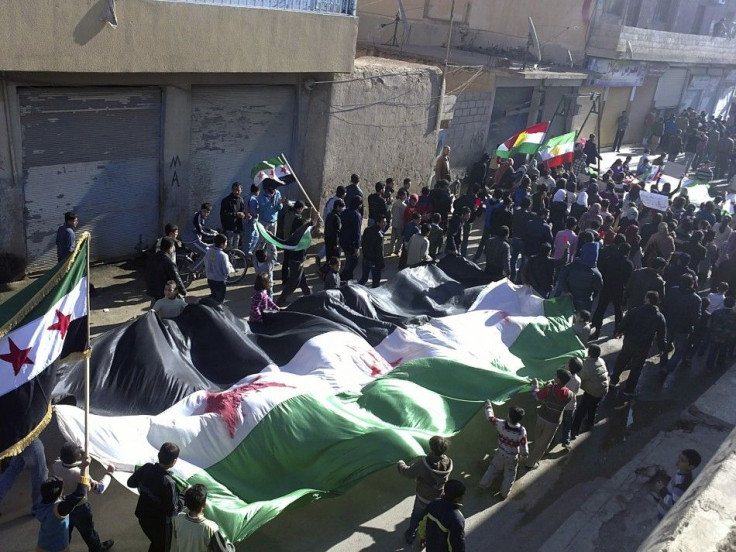Syria Conflict: Government Sponsored Killing, Torture, Propaganda Campaign Detailed in Report

Syrian armed forces have been directly ordered to kill, torture and indiscriminately arrest people in an effort to quell the civilian uprising that has roiled the country for months, according to defectors interviewed by Human Rights Watch.
The report paints a grim picture of a systematic government policy of using violence against unarmed protesters. Former soldiers and intelligence officers interviewed by Human Rights Watch said they were told that the protesters were terrorists or armed gangs supported by foreign funding, an explanation many of them initially accepted.
The statements of soldiers and officers who defected from the Syrian military and intelligence agencies leave no doubt that the abuses were committed in pursuance of state policy and that they were directly ordered, authorized, or condoned at the highest levels of Syrian military and civilian leadership, the report said.
While demonstrations were initially nonviolent, the report noted that protesters and armed neighborhood groups have begun resorting to violence as the situation has deteriorated. The Free Syrian Army, a group of military personnel who defected from the Syrian armed forces, has played a large part in the escalating number of attacks on Syrian security forces.
But witnesses testified that the majority of demonstrations have remained largely peaceful. Estimates place the number of slain protesters at around 4,000. Syrian authorities claimed in October that about 1,110 people had been killed by terrorists, but Human Rights Watch gathered evidence that many of those deaths were likely attributable to friendly fire, soldiers executed for refusing to follow orders or victims of government repression.
Military Defectors Describe Being Given Orders to Fire on Protestors
Many of the defectors described having been given explicit orders to fire on protesters. Others recounted being told to subdue protesters by any means necessary, which was universally seen as tacit permission to open fire.
It was a broad order that shooting was allowed, said a defector identified by the pseudonym Mansour. When officers were present they would decide when and whom to shoot. If somebody carried a microphone or a sign, or if demonstrators refused to retreat, we would shoot.
The report also documents of widespread arbitrary arrests at checkpoints or during sweeps of certain neighborhoods. People detained by security forces were routinely beaten or tortured with electric shocks, and Human Rights Watch estimated based on reports from activists that at least 197 people have died in custody.
Former soldiers detailed a massive misinformation campaign in which officers told them demonstrators were terrorists funded by foreign money. Their access to information was tightly controlled -- officers confiscated cell phones and only permitted them to watch state television -- and for many the lie only began to collapse when they went on leave and spoke to friends and family who were participating in the protests. One former soldier recounted discarding his gun and joining protesters after he and his comrades had killed eight unarmed protesters in a span of 15 minutes.
When the events started in Daraa, the officers took all our TVs, radios, and phones, a young conscript told Human Rights Watch. The only news we got was through internal radio, and it was all about hooligans, foreign elements, etc. Most of us believed it, and we were scared; even the movement of birds and butterflies would set off shooting.
In a particularly harrowing example of brutality, security forces frequently arrest wounded protesters using ambulances and mistreat or abuse wounded demonstrators after they arrive at hospitals controlled by intelligence agencies and the military.
Mukhabarat[ [intelligence forces] and the army brought the injured and unloaded them in the yard next to the emergency area,a defector said. Everybody would start beating them, including doctors and nurses. All the detainees were blindfolded.
© Copyright IBTimes 2024. All rights reserved.





















